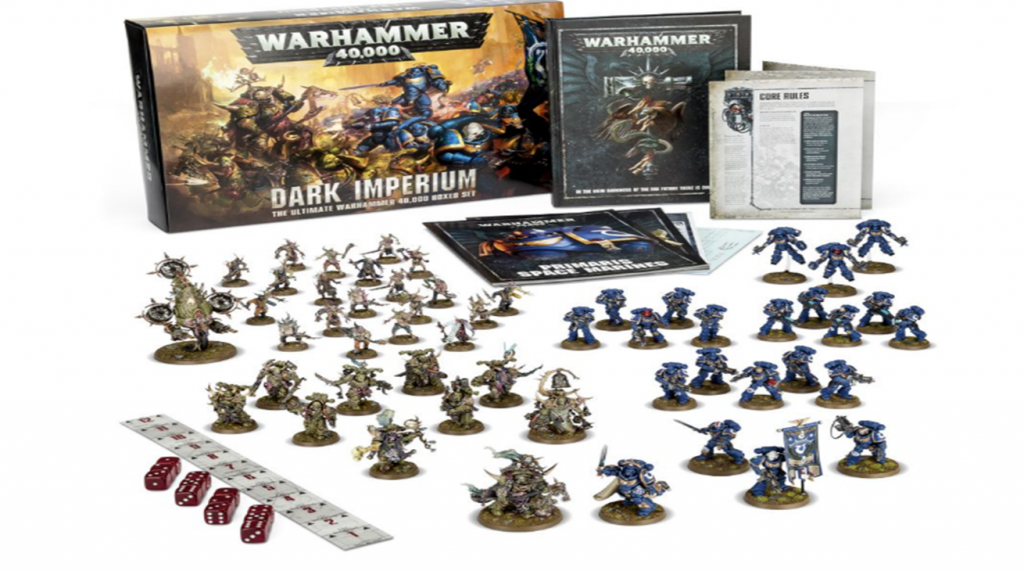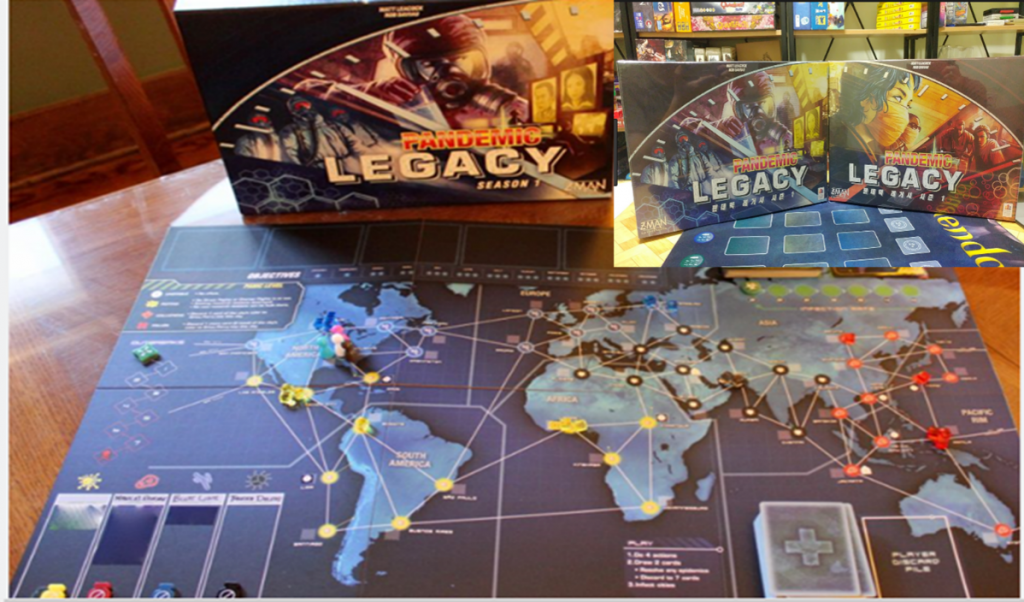1 Board games and learning: Why care in the digital age?
Board games and learning: Why care in the digital age?
Rebecca Bayeck, PhD, Penn State University
The Pennsylvania State University
Abstract. The renaissance of board games in the digital age is sometimes attributed to the multiplication of board game channels on Youtube (Muench, 2017), or to the need to socialize and interact in person (Jolin, 2016). Today, board gameplay is not only livestreamed on platforms such as Twitch.Tv, but sites such as boardgamegeek, and gaming conventions such as Gen Con create a space for board gamers to interact and keep up with the latest happening in the board game community/industry. . Though board gameplay is breaking into mainstream, studies on the different learning spaces in the digital era are still dominated by environments enriched with digital tools such as video games (Carter, Gibbs & Harrop, 2014a). Drawing on board game literature, this chapter discusses board games and how the resurgence of these games in the 21st century may provide an opportunity to understand learning in the digital age.
Introduction.
The rising trend of board gameplay in recent years puzzles many observers of the popular culture. In a technology-driven society, and in a time when important interactions are preferably delegated to technology (Turkle, 2012), the revival of board games (Graham, 2016) is intriguing as well as interesting. According to Euromonitor International, a global market research firm, the global sales of board games reached $9.6 billion in 2016, with board games such as Settlers of Catan selling more than $80 million in the United States (Graham, 2016). Board games are becoming for families, children, and young adults, a way to socialize and a common entertainment (Graham, 2016). Kay (2018) writes that U.S. sales of board games increased by 28% between 2016 and 2017 and will grow at a similar rate by 2020. The resurgence of board games in this age certainly denotes a need to explore the revival of board games in the United States in the era of video games. Paraphrasing James Gee, in this chapter, I interrogate board gameplay in an attempt to address the following question: what do board games have to tell us about learning in the digital age?
Oxford online dictionary defines board games as games that include the movement of counters or other objects round a board. These games are certainly different from video games because they include moving pieces on a premarked physical board (Berland & Lee, 2011). It should be noted that some board games such as Mysterium, Songo, Oware, Through the Ages: A New Story of Civilization, and Lords of Waterdeep have been digitized (Ekwè, 2005; Marks & Thrower, 2018). Yet, the board game renaissance is driven by children and adults (Jolin, 2016; Kay, 2018). Furthermore, the development of games such as German-style board games1 (e.g., Settlers of Catan and Pandemic) that prioritize action and encourage the optimization of limited resources (Kapp, 2018), also explain this resurrection.
Prior to discussing the relationship between board games and learning in the digital age, it is critical to explain that the notion of board game resurgence in this century is specific to the Western world (e.g., United States, United Kingdom, Canada, Germany). In Africa, and particularly in Cameroon, board gameplay has been a popular activity for centuries, and as such, the notion of board game resurgence in the digital age may not be applied to Africa, and specifically to Cameroon. The digital age refers to the wide use of digital technology in almost all aspects of human activities, including economic, social, and political interactions (Adomi, 2008; Wang & Torrisi-Steele, 2016). In other words, the digital age is characterized by digital technology shaping the way people live and interact (Ngelime, 2018). Though Africa has creatively embraced the digital age and can no longer be viewed as out of digital age world (Ngelime, 2018), board games have always been popular in different communities or ethnic groups (Nxumalo & Mncube, 2018).
Learning and board games in the digital age
Despite the resurgence of board games, they are mostly researched as artifacts or objects of art , and not as spaces for learning (Bayeck, 2017; Wise, 2018). Nevertheless, some researchers have started exploring board games as learning spaces (Berland & Lee, 2012; Carter et al., 2014) to uncover their learning potential (Bayeck, 2017; Carter, Harrop & Gibbs, 2014a). Such research deviates from the long-standing tradition in game studies that conceived board games as spaces to mine for the design of digital games to enhance players’ gaming experiences (Xu, Barba, Radu, Gandy & MacIntyre, 2011; Zagal, Rick & Hsi, 2006). As Carter et al. (2014b) explain:
The limited number of studies which solely focus on the attraction and experience of non-digital games presents the possibility that without a firm foundational understanding of the [board game] game experience, and the role that the physicality of this experience plays in the enjoyment of the game (highlighted as being important), essential elements of the experience may be overlooked or diminished in digital augmentation (p. 7).
Consequently, without an examination of board gameplay, the learning experiences board games offer to players are likely to be overlooked. In the following paragraphs, I discuss few studies on board games to highlight learning occurring in board gameplay, and to point to board games as spaces for learning that is relevant in the 21st century.
In their study of Warhammer 40,0002 (W40K) board game, Carter et al. (2014a) described players’ multiple activities that evidenced critical thinking, as well as strategic thinking. For instance, players researched narratives behind each army prior to drafting their army by using external resources such as books developed by the developers of the game (Carter et al., 2014a). Players also studied the characters prior to drafting their army by using fictional books about the game, and simulated their readings during their gameplay (Carter et al., 2014a). In addition, players developed their own gameplay strategy based on their preconception of how the game will unfold (Carter et al., 2014a). I argue that W40K practices as described in Carter et al. (2014a) involved a learning process that increased gameplay experience and motivation. For example, in researching players and the different armies’ narratives, players acquired research skills, while gaining more information about the characters and the armies. Playing also meant engaging in decision-making (e.g., drafting the army), and in strategic thinking as they created their own gameplay strategy (Carter et al., 2014a). Though a pastime, W40K activities engage players in learning that is pleasant and fun. Hence, the process of selecting characters, building the army, and using external resources is an illustration of players’ engagement in contextualized meaning making practices, or literacy practices. Indeed, from a sociocultural perspective, participation in practices related to the gameplay as well as interacting with others is learning (Lantolf, 2000; Nasir & Hand, 2006).
 Figure 1. Warhammer 40.000 adapted from Games Workshop
Figure 1. Warhammer 40.000 adapted from Games Workshop
Berland and Lee (2012) explored Pandemic3 (Figure 2), a collaborative board game in which players team up to fight diseases and keep the world safe. The authors show that players engaged in complex computational thinking activities distributed among participants (Berland & Lee, 2012). For instance, players collaborated to understand their actions, and engaged in significant crosstalk during gameplay (Berland & Lee, 2012). Consequently, Pandemic created a space for players to participate in learning activities that included computational thinking practices, and collaboration. Board games are therefore useful spaces for learning and practicing skills that are important for everyday life in the digital age.
 Figure 2. Pandemic adapted from Anderson (2016).
Figure 2. Pandemic adapted from Anderson (2016).
With regards to learning, it is important to also consider non-western board games. However, empirical studies of board games and learning in non-western contexts such as Africa are still extremely limited (Bayeck, 2017; Mkondiwa, 2019). Nevertheless, as mentioned earlier, the notion of resurgence of board games in the digital age cannot unquestionably be applied to Africa. Africa has a long tradition of board gameplay. Board games such as Oware, Songo, and Bao (Bayeck, 2017; BBC, 2016; Mawere, 2013) are ancient African board games that require “high degree of intelligence and vigilance when playing [them]” (Mawere, 2013, p.11). According to Mawere (2013) board gameplay constituted one of the educational strategies used in precolonial Africa. Though empirical studies on African board gameplay are practically nonexistent, description of strategic games such as Songo4 (Figure 3) evidences that the gameplay involves complex thinking and strategies to outwit the adversary (Meka, 2008; Owona, 2004).
 Figure 3. Songo board game adapted from Owona (2004)
Figure 3. Songo board game adapted from Owona (2004)
Songo gameplay involves the use of proverbs as a means to demonstrate players’ level of expertise, fast and complex calculations (Njock, 1985; Mbarg Owona, 2004). Building on Owona’s (2004) and Njock’s (1985) descriptions of the gameplay, it is clear that Songo gameplay involves practices that create learning opportunities for players. For instance, counting seeds/pebbles, strategizing to beat the opponent, and engaging in an exchange of proverbs (implying communication as well as language learning) are instances of learning and literacy practices embedded in this ancient African game that are relevant in the digital age. Hence, as competitiveness, strategy, and communication are critical in Songo gameplay, so are these ideas important in the digital age. Reflecting on another board game called Tsoro5 (Figure 4), Mawere (2013) writes:
In fact the players have to think quickly and clearly in order to outwit the opponent. This means that the game is meant to develop and sharpen the [player’s] intellectual faculty such that s/he [develops] the aptitude to manoeuvre different situations in real life. (p.11).

Figure 4. Tsoro board game adapted from http://home.kpn.nl/wasse257/tsoro/expl_gb.htm
Drawing from the discussion above, there is no doubt that exploring board gameplay is relevant for understanding learning in the digital age. Indeed, non-digital environments such as board games can allow for learning skills that have been strongly associated with digital technology (e.g., computational thinking). Moreover, board games tell us that learning in the digital age is also about interactions, and community. Players value the social component of board games that allows in-person interaction, and reduces isolation (Graham, 2016; Jolin, 2016). Considering that learning occurs in this space, I argue that learning is facilitated in environments that allow, or are designed for interactions to happen among learners, and for spaces that limit the isolation of individuals in the learning process. While Peerutin (2017) views the rise of board games as a counterpoint to the digital trend, a “desire to switch off from the harsh and anxiety-producing reality of the real world”, I argue that the resurgence can shape learning in this age. Quoting a player, Matson (2018) writes:
While the internet is a great thing, sitting down and playing with friends and family is becoming increasingly important. Having time away from our phones and computers where we can talk, play and enjoy time together is something board games let us do.
A first glance at this statement seems to indicate that board game players want to stay away from digital technologies. However, a closer look at this statement also unravels a desire to interact, to be in an environment that enhances togetherness. This understanding is for instance supported by the livestreaming of board gameplay on Twitch.Tv, which shows that staying away from digital tools, is not the only and predominant attraction of board games for players. The social component of board games can inform the design of learning settings in the 21st century.
Conclusion
With the resurgence of board games, especially in the Western world, in the era of social media, digital games, and other forms of digitally-mediated human interactions, I discuss in this chapter learning in the digital age through board games. I contend that limiting the rise of board games to the need for players to interact in person, away from digital tools, may prevent researchers, designers, and educators from engaging with what that may mean for learning in the era of digital technology. The revival of board games gives us insights into learning and learners today; it tells us about learning in the digital age. As much as digital games’ popularity has drawn the interest of educational researchers, the rise of board games in the digital era calls for greater exploration of learning in these spaces, and their potential to inform learning, and the design of learning settings in this age.
References
Anderson, N. (2016, March 3). Gaming & Culture: Pandemic Legacy is the best board game ever—but is it “fun?” Ars Technica. Retrieved from https://arstechnica.com/gaming/2016/03/pandemic-legacy-is-the-best-board-game-ever-but-is-it-fun/
Bayeck, R. Y. (2017). A review of five African board games: is there any educational potential? Cambridge Journal of Education, 1–20. doi:10.1080/0305764x.2017.1371671
BBC The games at the heart of Ghana life (2016). Retrieved April 30, 2018, from http://www.bbc.com/news/av/world-africa-35284441/the-games-at-the-heart-of-ghana-life
Berland, M., & Lee, V. (2011). Collaborative strategic board games as a site for distributed computational thinking. International Journal of Game-Based Learning, 1(2), 65–81.
Berland, M., Lee, V. (2012). Collaborative strategic board games as a site for distributed computational thinking. International Journal of Game-Based Learning, 1(2), 65–81
Boycott-Owen, M. (2018, May 12). After books and vinyl, board games make a comeback. The Guardian. Retrieved from https://www.theguardian.com/lifeandstyle/2018/may/12/millennials-drive-board-games-revival
Carter, M., Gibbs, M., & Harrop, M. (2014a). Drafting an army: The playful pastime of Warhammer 40,000. Games and Culture, 9(2), 122-147.
Carter, M., Harrop, M., & Gibbs, M. (2014). The roll of the dice in Warhammer 40,000. Transactions of the Digital Games Research Association, 1(3).
Carter, M., Harrop, M., Gibbs, M. (2014b). The Roll of the Dice in Warhammer 40,000. ToDiGRA, 3(1), 1-28. Retrieved from http://todigra.org/index.php/todigra/article/view/20
Ekwè, D. (2005, April 21). Serge Mbarga Owona: Enfant du Songo. Mutations. Retrieved from http://www.cameroon-info.net/article/serge-mbarga-owona-enfant-du-songo-92571.html
Graham, L. (2016, December 22). Millennials are driving the board games revival. CNBC. Retrieved from https://www.cnbc.com/2016/12/22/millennials-the-board-games-revival-catan-pandemic.html
Harrop, M., Gibbs, M. & Carter, M. (2013). Everyone’s a winner at Warhammer 40K (or, at least not a loser). In Proceedings of the DiGRA 2013 Conference: DeFragging Game Studies. Atlanta, GA.
Jolin, D. (2016, September 25). The rise and rise of tabletop gaming. The Guardian. Retrieved from https://www.theguardian.com/technology/2016/sep/25/board-games-back-tabletop-gaming-boom-pandemic-flash-point
Kapp, K. (2018, January 28). Board games and card games: leading the learning game field in 2018. Retrieved from http://karlkapp.com/board-games-and-card-games-leading-the-learning-game-field-in-2018/
Kay, J. (2018, January 21). The invasion of the German board games. The Atlantic. Retrieved from https://www.theatlantic.com/business/archive/2018/01/german-board-games-catan/550826/
Lamb, R. (2011, July 21). How Pandemic Works. HowStuffWorks.com. Retrieved from https://entertainment.howstuffworks.com/leisure/brain-games/pandemic-game.htm
Lantolf, J. P. (2000). Introducing sociocultural theory. Sociocultural theory and second language learning, 1, 1-26.
Marks, T. & Thrower, M. (2018). The best board games you can play on PC. PC Gamer. Retrieved from https://www.pcgamer.com/best-digital-board-games/
Mawere, M. (2013). Child education in pre-colonial Africa: Lessons from traditional strategies used to raise and educate children in pre-colonial Zimbabwe. InM. Mawere & P. Rambe, P. (eds.), Leveraging educational quality in southern African educational systems: A practitioners’ perspective (pp. 5-22). Mankon, Bamenda, Cameroon: Langaa Research & Pub. CIG.
Meka, O. J.M. (2008). Le jeu du Songo: Reflets du social. Cameroun: L’Harmattan
Mkondiwa, M. (2019). Games of strategy in culture and economics research. Journal of Economic Methodology, 1–18. doi:10.1080/1350178x.2019.1680858
Muench, L. (2017, November 1st). How YouTube brought board games back: A look at three channels that transformed board gaming into a modern hobby. The Scout. Retrieved, from https://thescoutmagazine.co/how-youtube-brought-board-games-back-9f23909f955a
Nasir, N. I. S., & Hand, V. M. (2006). Exploring sociocultural perspectives on race, culture, and learning. Review of Educational Research, 76(4), 449-475.
Ngelime, N. (2017, September 15). A look at the digital age in Africa. [Blog Post]. Retrieved from https://www.zoomtanzania.com/blog/look-digital-age-africa/
Njock, G. E. (1985). Mathématiques et environnement socio-culturel en Afrique Noire. Présence Africaine, 3, 3-21.
Nxumalo, S. A., & Mncube, D. W. (2018). Using indigenous games and knowledge to decolonise the school curriculum: Ubuntu perspectives. Perspectives in Education, 36(2), 103–118
Owona, S. M. (2004). Le jeu de Songo. Paris, France: L’Harmattan.
Peerutin, S. (2017, August 21). Board games are quietly, nerdily, becoming big business. Daily Maverick. Retrieved from https://www.dailymaverick.co.za/article/2017-08-21-board-games-are-quietly-nerdily-becoming-big-business/#.WudR5I37ljo
Turkle, S. (2012). Alone together: Why we expect more from technology and less from each other. New York: Basic Books
Wang, V. X., & Torrisi-Steele, R. (2016). Reflective Learning in the Digital Age: Insights from Confucius and Mezirow. In V. Wang (Ed.), Handbook of Research on Learning Outcomes and Opportunities in the Digital Age (pp. 421-440). Hershey, PA: IGI Global.
Wise, C. (2018, February 22). Artist Simon Denny uses board games to explore how business affects culture. Ideastream. Retrieved from http://www.ideastream.org/news/artist-simon-denny-uses-board-games-to-explore-how-business-affects-culture
Xu, Y., Barba, E., Radu, I., Gandy, M. & MacIntyre, B. (2011). Chores are fun: Understanding Social Play in Board Games for Digital Tabletop Game Design. In Proceedings of The 5th International Digital Games Research Conference. Hilversum, The Netherlands: DiGRA.
Zagal, J. P., Rick, J., & Hsi, I. (2006). Collaborative games: Lessons learned from board games. Simulation & Gaming, 37(1), 24-40.
This resource is no cost at https://open.library.okstate.edu/learninginthedigitalage/

